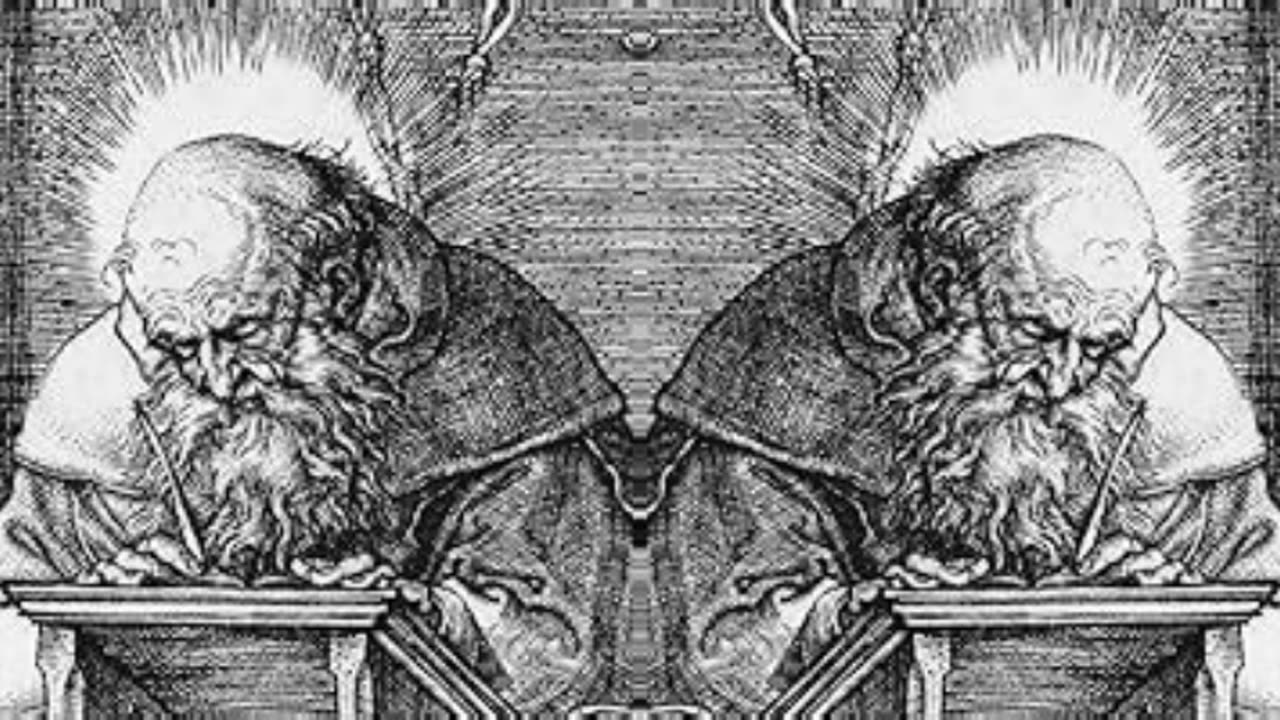Premium Only Content

Enchiridion Militis Christiani (English: Handbook of a Christian Knight, 1503)
This 1503 book by Desiderius Erasmus (1466–1536) is a concise guide for lay Christians on living a devout and morally upright life according to Christ’s teachings. Erasmus wrote it to encourage personal piety, ethical conduct, and spiritual integrity, emphasizing inner virtue over outward rituals or ostentatious displays of religiosity. Using the metaphor of the “Christian knight,” he frames life as a battlefield against sin, vice, and moral weakness, urging readers to cultivate moral discipline and spiritual vigilance in everyday life. The book stresses the importance of personal engagement with Scripture, arguing that knowledge of the Bible is central to genuine Christian growth. Influenced by humanist ideals, Erasmus blends classical notions of virtue and reason with Christian ethics, highlighting rational reflection, learning, and moral self-cultivation. Written in a clear and accessible style, it was intended for lay readers rather than scholars or clergy, combining practical advice with metaphorical language to make spiritual lessons tangible. The Enchiridion became one of Erasmus’ most popular works, shaping Christian humanism and inspiring later efforts to reform Christian practice from within the Church while maintaining orthodox belief.
About the Author:
Desiderius Erasmus (1466–1536) was a Dutch Renaissance humanist, theologian, and scholar, widely regarded as one of the most influential intellectuals of his time. Born in Rotterdam, he was educated in classical literature, philosophy, and theology, developing a deep command of Latin and Greek that would shape his scholarly career. Erasmus devoted himself to the study of the Bible and the early Church Fathers, seeking to reconcile classical learning with Christian faith, and he became a leading proponent of Christian humanism. He is best known for advocating moral and educational reform within the Church, emphasizing personal piety, reason, and ethical conduct over ritualistic or superstitious practices. Erasmus authored numerous works, including The Praise of Folly and Adagia, combining wit, scholarly insight, and moral instruction. Throughout his life, he sought reform without schism, maintaining loyalty to the Catholic Church while criticizing its abuses. His writings influenced both the Protestant Reformation and the broader intellectual currents of Renaissance Europe, leaving a lasting legacy as a thinker who championed education, critical scholarship, and the cultivation of virtue.
-
 4:11:05
4:11:05
Deus Meum Que Jus
6 days ago"Propaganda" by: Edward Bernays (1928)
450 -
 33:09
33:09
Exploring With Nug
3 hours ago $2.81 earnedThey Weren’t Ready for Nightfall on Blood Mountain… So I Helped Them Down
13.7K1 -
 LIVE
LIVE
Sarah Westall
2 hours agoBoardroom and Government Infiltration: The Silent Erosion of American Power w/ Mike Harris
218 watching -
 LIVE
LIVE
Mally_Mouse
22 hours ago🎮 Let's Play!!: Stardew Valley pt. 33
202 watching -
 LIVE
LIVE
VapinGamers
1 hour ago $0.20 earnedForlight 84/Fortnite: Rum Bot Testing - Gaming, Coding and Other Things - !rumbot !music
60 watching -
 LIVE
LIVE
OhHiMark1776
3 hours ago🟢 11-21-25 ||||| Two Morrows make a Day-to-Day? ||||| Livestream (2025)
166 watching -
 9:57:30
9:57:30
GrimmHollywood
11 hours ago🔴LIVE • GRIMM HOLLYWOOD x SILVER FOX • GOLDEN YEARS • FINAL DAY • FLARE RACE • ARC RAIDERS •
6.82K4 -
 1:11:24
1:11:24
The Daily Signal
4 hours ago $2.66 earned🚨BREAKING: Democrat Steals $5 Million from FEMA, Trump-Mamdani Meeting Gets Bizarre
10.7K3 -
 1:02:11
1:02:11
BonginoReport
6 hours agoJ.D. Vance Threatens to Kill JD Vance?! - Nightly Scroll w/ Hayley Caronia (Ep.183)
99.9K36 -
 3:09:50
3:09:50
Nerdrotic
17 hours ago $13.74 earnedWarner Bros Fire Sale! | Last Ronin CANNED | WICKED For Good REVIEW - Friday Night Tights 381
42.3K9